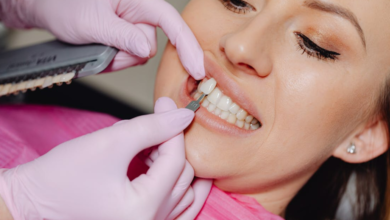Understanding How Aging Affects Dental Structure and Function

Aging affects oral health as much as other parts of the body, leading to enamel wear, gum line changes, and reduced saliva production. Understanding these changes is essential for maintaining a healthy smile and overall well-being in later life.
Recognizing the Shifts in Dental Structure
Changes in Tooth Enamel
Enamel, the tough outer coating of our teeth, is not invincible. Decades of chewing, drinking, and exposure to acidic foods slowly erode this protective layer. With thinner enamel, teeth become more sensitive and susceptible to decay and discoloration. This means older adults might notice their teeth feeling more tender to hot or cold food or drinks, or they might see a general yellowing as the underlying dentin becomes visible.
Gum Recession and Periodontal Health
Gum tissue naturally recedes with age, creating new challenges for dental structure and function. As gums pull back, tooth roots become exposed, increasing sensitivity and risk for decay in areas that were once well protected. Additionally, aging often coincides with a greater risk for periodontal (gum) disease, which, if left unchecked, can accelerate bone and tooth loss.
Preventing or slowing gum recession involves consistent and gentle oral hygiene. Regular dental check-ups are also critical so any signs of periodontal disease can be addressed early, safeguarding both the gums and supporting bone structures.
Changes in Tooth Position and Alignment
The teeth are never static, even in adulthood. Over time, small shifts can occur, leading to crowding, spacing, or misalignment. This is partly due to natural bone loss in the jaw as we age, as well as the slow, continuous movement of teeth. Older adults might notice changes in their bite or feel that previously comfortable dental appliances, like dentures or bridges, need adjustments. Misaligned teeth can also contribute to difficulty chewing or increase the likelihood of damage due to uneven tooth wear.
See also: How Vosita is Revolutionizing Healthcare Access for Remote Areas
Functional Impacts of an Aging Mouth
Decreased Saliva Production
Saliva is not just for keeping your mouth comfortable; it plays a crucial role in neutralizing acids, digesting food, and maintaining oral hygiene. Aging, as well as common medications used by older adults, can reduce saliva production. This condition, called xerostomia (dry mouth), increases the risk of cavities, bad breath, and oral infections. A persistent dry mouth can also make chewing and swallowing more challenging, potentially impacting nutrition.
Greater Risk for Tooth Decay and Loss
Because of thinner enamel, higher rates of gum recession, and reduced saliva, older adults face a heightened risk for cavities and ultimately, tooth loss. Tooth loss doesn’t just affect the appearance of a smile but can also influence nutrition and self-esteem.
Solutions like full mouth restoration, such as those offered in Grand Junction, CO, can help restore function and confidence. Maintaining rigorous oral hygiene, including regular brushing and flossing, along with routine dental visits, becomes even more important with age.
Reduced Bite Force and Chewing Efficiency
Muscle tone naturally diminishes with age, and the jaw is no exception. Weakening jaw muscles and changes in tooth alignment can reduce bite force, making some foods hard to chew. Coupled with issues like tooth wear, missing teeth, or ill-fitting dental appliances, eating can become uncomfortable. This may lead to a preference for softer, often less nutritious foods, which can affect overall health.
Proactive Strategies for Supporting Oral Health as You Age
While the above changes may sound daunting, many effects of aging on dental structure and function are manageable with the right approach.
- Maintain excellent daily hygiene with proper brushing and flossing techniques to help prevent gum disease and tooth decay.
- Use fluoridated toothpaste to reinforce enamel and protect against cavities.
- Stay hydrated to support saliva production, and talk to your dentist or doctor if persistent dry mouth is an issue.
- Schedule regular dental check-ups and cleanings so that any emerging issues can be identified and treated early.
- Discuss any medication side effects with your healthcare provider, particularly those that may cause dry mouth or other oral health concerns.
- Eat a balanced diet rich in calcium, vitamin D, and other nutrients important for dental health.
- Consider additional protective steps, such as customized mouthguards if grinding or clenching is an issue, or adjusting dental appliances as needed for comfort and function.
Conclusion
Aging can affect dental health, but with proper care, a healthy smile is achievable at any age. Daily hygiene, professional guidance, and smart dietary choices can keep your teeth and gums strong. Good oral health supports confidence, well-being, and quality of life, making dental care a valuable investment as you age.






